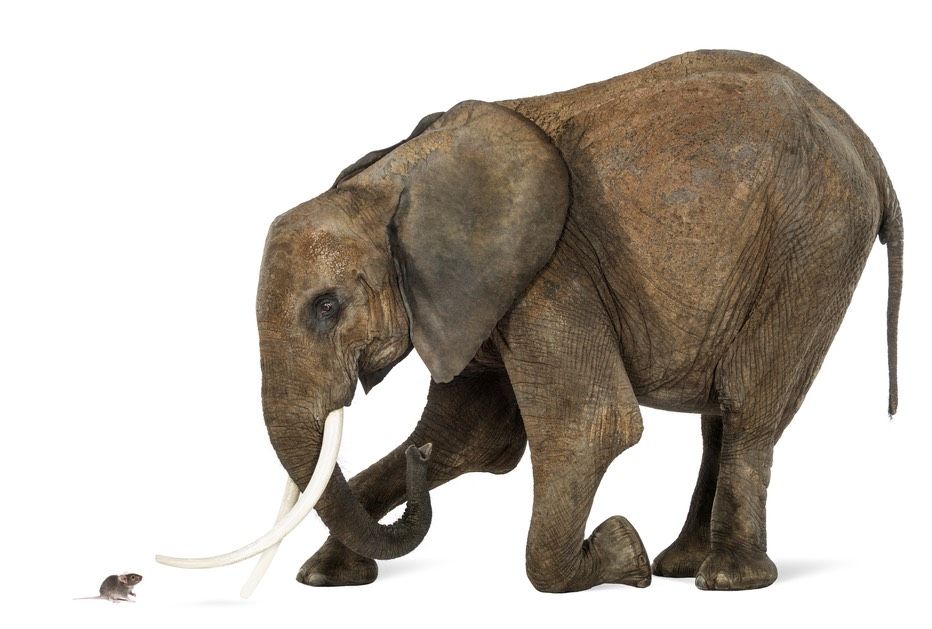In 45 years, on one occasion when dwelling in Jetavana monastery, the Buddha expounded Dhamma talks which referred to an Elephant named Pāveyyaka of Kosala King.
That Elephant was very strong when he was young and become weak as he got older. One time, the old Elephant went into the pond, he was stuck in the mud and could not move himself. In the same way, the human being was very strong when he was young could do everything with energy, but he can’t do that as he got older; birth and death occur because of five aggregates and mental defilements. Ordinary person cannot escape from Jāti (birth), Jarā (ageing), Byāti (disease) and Maraṇa (death), if he did not clear the path to attain the peaceful state (Nibbāna); even though the kings, householders, poor men, armies, deities, Brahmas and so on, they must face of birth and death again and again in the cycle of rebirth if they still have immoral defilements.
The king was told about that case by the people in city, he ordered the Elephant trainer to go to the side where Elephant was in pond, to help him getting out from the mud. In Buddhism, there are 61 arahattas altogether, firstly, they were separated each other and went to different ways or states for helping the human beings not only human worlds but also the deity worlds, Brahma worlds, and in short, all the 31 planes. The king is regarded as the Buddha because he knows the way how to help others by supreme wisdom, the Elephant trainer is like the disciple of Buddha because he was ordered and went to help the Elephant to free from the mud as well as the disciples who understand the Dhamma talk to point out meritorious deeds for human beings to be free from the mental defilements. All arahattas have never stayed in any particular place not only arahattasbut also the Buddhist monks did not yet attain arahattas, they always move from one place to another in order to give Dhamma talk to all the human beings; they have never said “hey coming to me, I will give Dhamma talk”. Example, for the time being, in
At that time, the Elephant trainer knew how to help older Elephant; therefore, he ordered his men to form as enemy’s front army marching toward the Elephant and beat the battle-drum. On seeing enemies and hearing battle-drum, the Elephant which was proud to win in all wars; so, his spirit rose, he pulled himself with all his might and strength, was soon out of the mud. In the same way, the Amoha puggala (wise men) who were proud and pulled himself from human worldling and reached the non-suffering state, on hearing the Dhamma talk of Buddha or disciples of Lord Buddha. Therefore, the Buddha said that:
“Take delight in Mindfulness, guard your mind well. As an elephant stuck and having difficulty in mud pulls itself out, so also, pull yourself out of the mud of moral defilements.”
It is easy to delight the mind when we understand the cause of joyfulness. Joyfulness comes from the feeling of being successful in having completed some activity correctly and successfully. So if we know how to take delight in the mindfulness, it meant we focus our mind on Four Foundation of Mindfulness completely. The Satipatthāna which is the way to eliminate all suffering (Dukkha) in the world; and it also the path to point out for understanding the three characteristic of natures such as Anica (impermanent), Dukkha suffering, and Anattānon-self. In the end, we can escape from all the moral defilement in the cycle of rebirth, to attain the arahattaship. In this verse, take delight in Mindfulness means you must always take delight in living with mindfulness. The mind with mindfulness, will lead to wholesome deeds; guard your mind well from leading to unwholesome consciousness concerned with any objects. The stuck and mud mean that the moral defilements, so the meaning in these verses we have to pull out from mental defilements and focus our cittas onto Nibbāna.
At the end of giving the Dhamma talks, that time the Bhikkhu surrounding the Buddha who attained the Noble Path and Noble Fruition of Arahatta and realized Nibbāna.







No comments:
Post a Comment